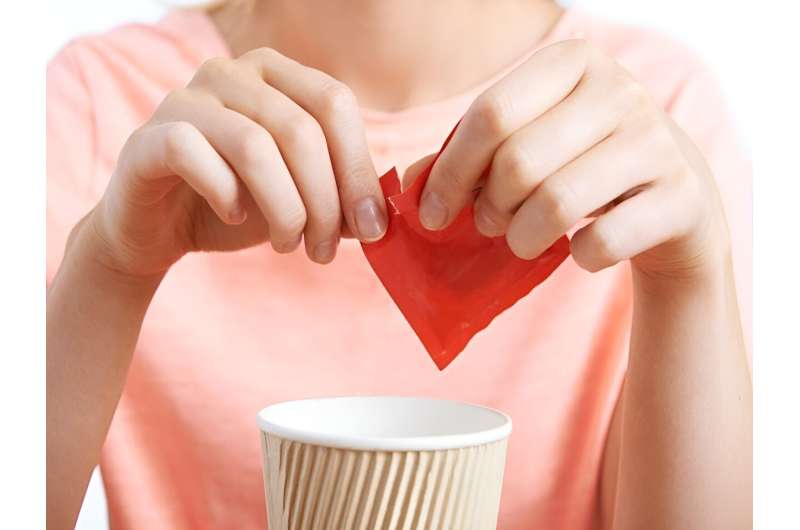This article has been reviewed according to Science X's editorial process and policies. Editors have highlighted the following attributes while ensuring the content's credibility:
fact-checked
peer-reviewed publication
reputable news agency
proofread
Could artificial sweeteners alter your microbiome?

You may think that artificial sweeteners can help you lose some weight, but a new study finds they are no good for your gut's microbiome.
People who use aspartame (Equal), sucralose (Splenda), saccharin (Sweet'N Low), or stevia leaf extract tended to have intestinal bacteria colonies that differed significantly from those of people who didn't use sugar substitutes, researchers found.
They had less rich colonies of bacteria in their small intestines or, even worse, higher levels of bacteria that churn out harmful toxins.
"Artificial sweeteners are not benign for the microbiome of the gut," said study author Dr. Ruchi Mathur, a professor and endocrinologist with Cedars-Sinai Medical Center in Los Angeles.
More than 140 million Americans use artificial sweeteners to lower their sugar intake, researchers said in background notes.
However, concerns have been raised that sugar substitutes don't help with long-term weight loss and might be tied to increased risk of type 2 diabetes and heart disease, researchers said.
The gut microbiome plays a key role in a person's health, and diet can influence the makeup of these bacteria in significant ways.
So, in a controlled study, researchers analyzed the microbial diversity of the small intestines in people who used artificial sweeteners, including nine who used aspartame and 35 who used other sugar substitutes.
They compared the gut microbiome of those patients to a group of 55 people who didn't use artificial sweeteners.
"We found that the richness of the bacteria in the small bowel was less in those subjects consuming non-aspartame non-sugar sweeteners when compared to controls, whereas bacterial richness in those consuming aspartame was similar to controls," Mathur said.
However, that didn't mean that aspartame users were better off. Their microbiomes were more likely to churn out a toxin called cylindrospermopsin, Mathur said.
"This pathway is recognized for its harmful effects on the liver and the nervous system, and it is classed as a potential cancer-causing agent," Mathur said.
Future studies should look more closely at how the changes observed here might affect a person's overall health, researchers said.
The study was published recently in the journal iScience.
More information: The Cleveland Clinic has more on the gut microbiome and your health.
Copyright © 2024 HealthDay. All rights reserved.



















